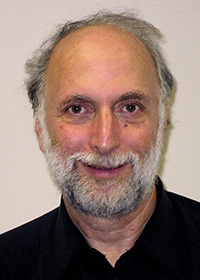Ebola crisis gives students ‘real-world view’ of public health
November 3, 2014

The Ebola crisis has given graduate students in Dr. Eric Brenner’s class an opportunity to understand how public health, medical and policy leaders work together.
The Ebola crisis.
It’s in the news. It’s being discussed in medical and public health throughout nation. It’s even a hot topic among politicians.
And now Ebola is in the classroom – or, at least, discussion of the crisis is in the classroom.
Thanks to Dr. Eric Brenner of the Arnold School of Public Health, graduate students taking Epidemiology 749 on infectious diseases have had the opportunity to learn about Ebola -- one of the world’s most fatal viruses if left untreated – as it is being spread beyond west Africa where the current outbreak began.
Brenner, a medical epidemiologist with past experience in South Carolina with the Department of Health and Environmental Control, nationally with the Centers for Disease Control (CDC), and internationally with the World Health Organization (WHO) is an adjunct faculty member at the Arnold School. In a recent class session he gave students a choice: They could either discuss the materials from the syllabus or they could be part of a conference call with senior U.S. government officials discussing Ebola and its potential impact on health, security and policy issues.
The class chose the conference call. “We all agreed that this would be an interesting and instructive thing to do,” he said.
Jameson Sofge, a first-year doctoral student, said the class was one of the best in his academic career.
Listening to national policymakers discuss the Ebola threat was an opportunity, Sofge said, that linked the realities of the infectious disease and the patient-care and public health challenges that are being faced by the CDC , WHO, and doctors nurses and other professionals who are on the front lines of disease prevention and saving lives.
The class session on Ebola, in a word, was “fascinating,” said Sofge.
Even Brenner, who travels internationally through work with the International Red Cross and other organizations admits that it was “fascinating to hear the discussion … and the calls from people who were phoning in with questions.”
It was an opportunity, Brenner said, for students to listen in “behind the scenes” to “a real-world challenge in which decisions with potentially far-reaching implications for the public’s health need to be made even in the face of incomplete information about the disease in question.
Brenner explained: “We gained extra insights regarding how society works during a time of uncertainty and how we deal collectively with what is plausible while weighing pros and cons of each decision which might be made.”
Regional hospitals throughout South Carolina are getting ready to handle potential Ebola cases, Brenner said.
“Extraordinary preparation is required,” said Brenner, who stays who stays abreast of the discussions on Ebola via webinars, seminars and conference calls with other medical and health leaders.
For Sofge, having the class with Brenner has given him the opportunity to ease into life as a doctoral student.
Sofge earned a bachelor’s degree in biology from the University of Georgia and master’s degree in biomedical science from Auburn University. He applied to Ph.D. programs in public health throughout the Southeast and sent his last application to the Arnold School. As fate would have it, the Arnold School offered him the most competitive package. “I realized that this is where I am supposed to be.”
Since August, Sofge has become fully immersed in his studies, and it appears that Brenner’s class on infectious diseases is getting high marks.
“Dr. Brenner loves teaching. It is obvious that he is a physician. He teaches in a clinical style,” said Sofge, a native of Atlanta. “He has a way of asking questions and helping you understand the answers.”
Although Sofge admits that he arrived at the Arnold School without “having the background or training on infectious diseases,” he will leave Brenner’s class with a greater understanding of infectious diseases and how the nation’s public health system protects people and communities from illness.
Among the topics covered in the class, he said, are tuberculosis, rabies, measles, influenza, food-borne and vector-borne diseases.
“Although the individual patient is the focus of care, the goal in this class is to gain broader perspectives about the health of the community and the nation as well,” he said.



_01.jpg)
_02.jpg)